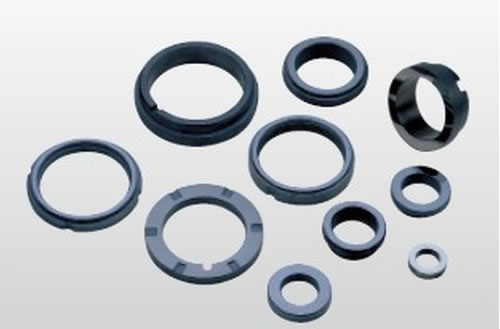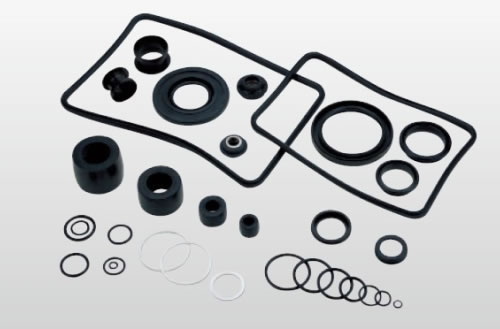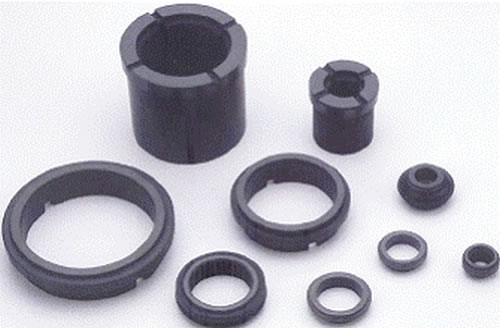- Component Seals
- Dry Gas Seals
- Metal Bellows Seals
- Mixer and Agitator Seals
- Single & Dual Cartridge Seals
- Special Seals
- Seal Materials
- Silicon Carbide Seals
- Tungsten Carbide Seals
- VITON Rubber Seals
- Graphite Seals
- Seals Support System
- Sealing Accessories
- Sealing Machines
- Tungsten Carbide CNC Cutting Tools
- Tungsten Carbide Button Bit

- Silicon Carbide Seals (SIC)Silicon carbide seal is a bluish-black material composed by fusing silica and coke. It is like ceramic because of silica, but has much better lubrication qualities and is harder. In chemical applications, silicon carbide may be recommended. Either grade of SiC can usually be re-lapped and polished to be...

- Tungsten Carbide Seals (TC)Tungsten carbide is widely used as seal faces with wear resistance, high fractural strength, high thermal conductivity, and small heat expansion co-efficient. Tungsten carbide is the best material to resist heat and fracture in all hard face materials. 1. Tungsten carbide seal is cheap, heat resistant and resilient...

- VITON Rubber SealsViton is a brand of synthetic rubber and fluoropolymer elastomer commonly used in O-rings and other molded or extruded goods. Viton rubber seals are usually applied in faucets, toilets, fittings, pipes, showers and other industry accessories, and auto parts.This rubber mechanical seal can be resistant against heat...

- Graphite SealsCarbon graphite is an ideal seal material in every aspect. It’s impervious and resistant to most chemicals. Carbon graphite seals are one of the most important solutions for those looking for a sealing material that seals tightly and offers several other important characteristics. Seals are an important...
Seal Materials
Description
Seal materials (sealing elements) are used for preventing gas or water from flowing, featuring in good mechanical and physical properties, such as high elasticity, small deformation, reliable sealing, convenient processing, long service life, etc.
Seal materials have metal materials (aluminum, lead, indium, stainless steel) and non-metal materials (rubber, plastic, ceramic, graphite). They also have composite materials (rubber-asbestos). The most common types of seal faces are silicon carbide, tungsten carbide, rubber, graphite and so on. And Trisun, our company, provides all these types with superior quality.
Features of Seal Materials
Mechanical seals have a wide range of designs and the most important factor to determine how long a seal is going to last, is deciding on the right sealing elements.
1. Silicon carbide is a bluish-black material composed by fusing silica and coke. It is like ceramic because of silica, but has much better lubrication qualities and is harder. In chemical applications, silicon carbide may be recommended. Either grade of SiC can usually be re-lapped and polished to be reused.
2. Tungsten carbide is a very versatile seal face like silicon carbide. It is very hard like silicon carbide but heavy, making it easy to distinguish from silicon carbide. This seal material is ideal for high pressure applications due to a high modulus of elasticity which helps prevent face distortion. Tungsten carbide also can be re-lapped and polished to be re-used.
3. Rubbers or elastomers are complex materials that exhibit unique combinations of useful properties. The first and foremost property is elasticity. All elastomers have the ability to deform substantially by stretching, compressing or reversing and are able to snap back to almost their original shape after removal of the force causing the deformation. Silicon rubber, one kind of rubber sealing elements, is characterizing high temperature resistance, low temperature resistance, radiation resistance, vacuum resistance, non-pollution and non-toxicity.
Advantages
1. The seal materials provided by our company feature long service life, less maintenance, and lowest cost.
2. Our seal design experts can work with you to select the best materials and optimal bespoke sealing solutions for your needs.
3. We work closely with a wide range of leading global companies and a variety of industries to develop sealing solutions that perform in difficult applications.


